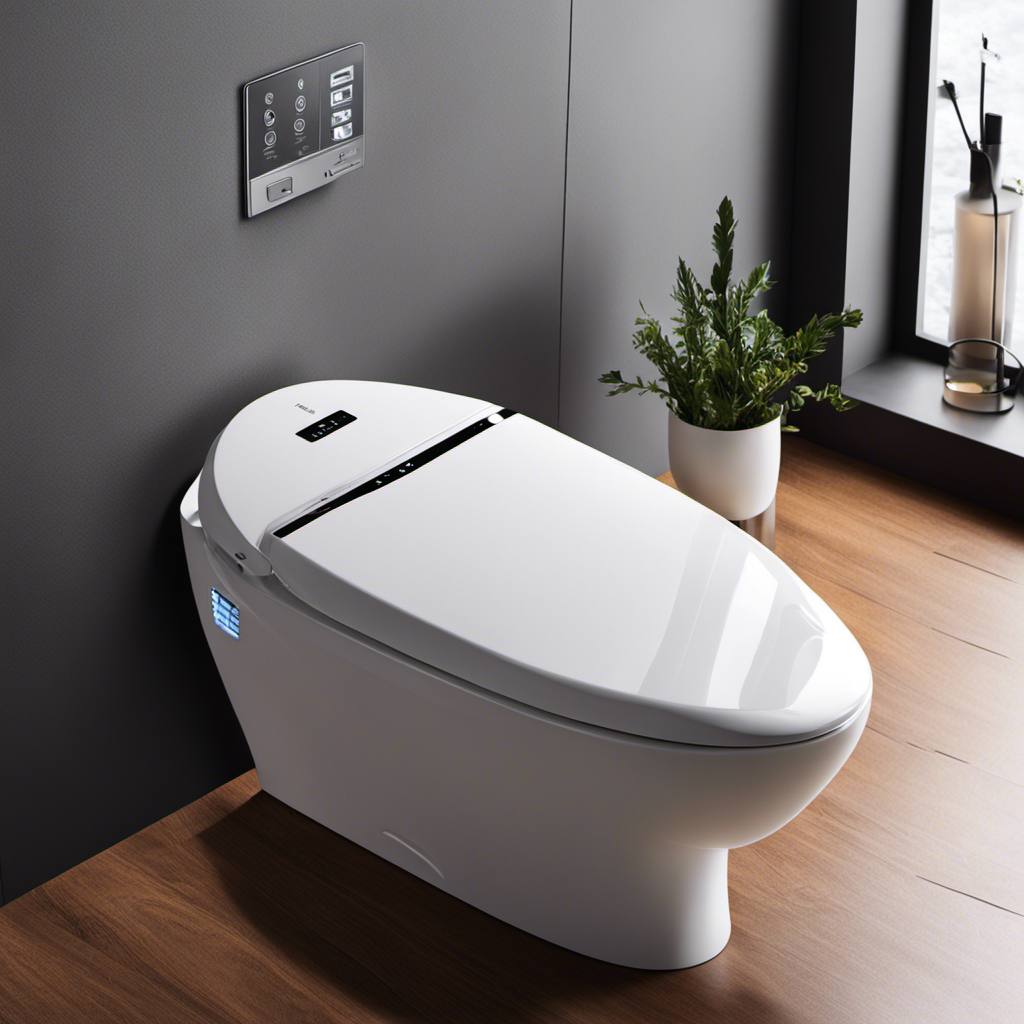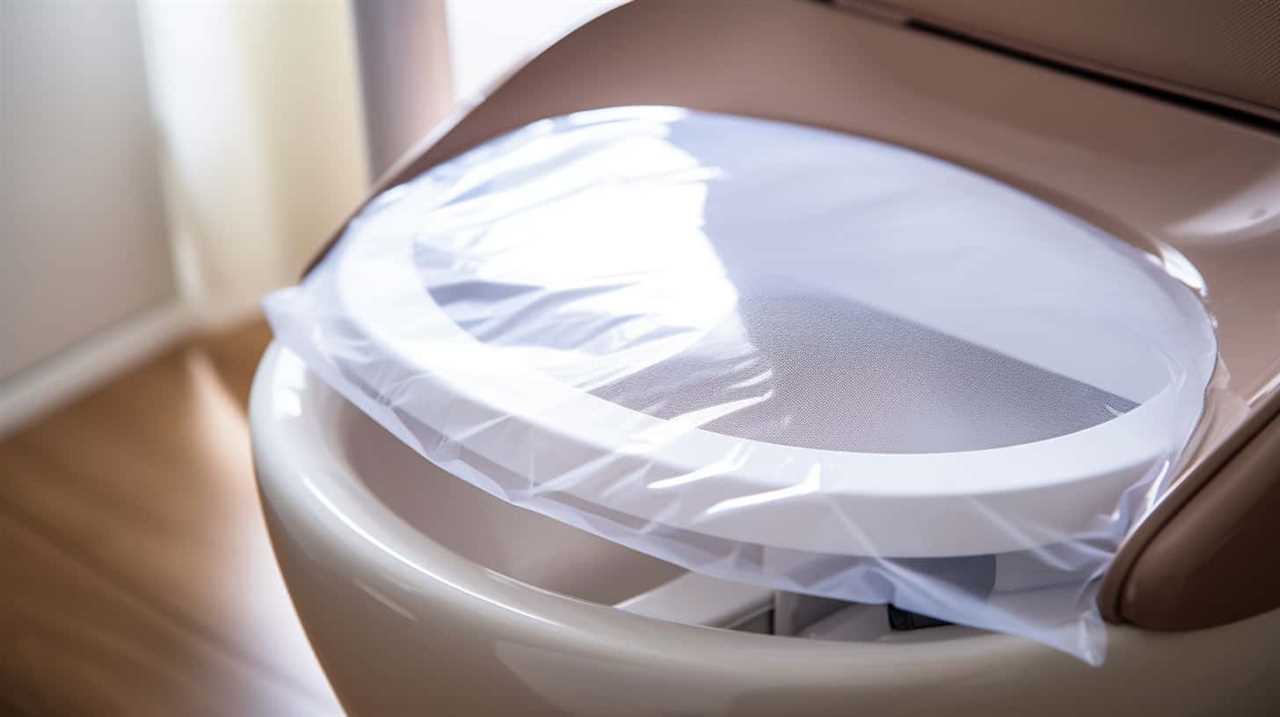Did you know that the average person spends about 3 hours per week sitting on the toilet? That’s a surprising amount of time!
But have you ever wondered if there is such a thing as sitting on the toilet for too long? In this article, I will explore the health risks associated with prolonged toilet sitting, the impact it can have on digestion, and provide recommended time limits for toilet use.
I will also share signs that indicate you’ve been sitting on the toilet for too long and strategies to avoid excessive time on the throne.
Key Takeaways
- Prolonged toilet sitting can increase the risk of health issues such as hemorrhoids, constipation, and urinary tract infections.
- Extended toilet sessions can negatively impact digestion by decreasing blood flow to digestive organs, impairing digestive functioning, and increasing the risk of hemorrhoids.
- It is recommended to limit toilet use to a few minutes to avoid straining and bowel issues, and practicing good bathroom etiquette is important.
- Signs that you’ve been sitting on the toilet for too long include discomfort, poor toilet posture, strain on lower back and pelvic floor muscles, and inadequate support or cushioning from the toilet seat.
Health Risks Associated With Prolonged Toilet Sitting
Sitting on the toilet for too long can increase the risk of various health issues. Prolonged toilet sitting can lead to a range of health consequences, including hemorrhoids, constipation, and urinary tract infections.
When we sit on the toilet for extended periods, it puts pressure on the rectal area, causing the blood vessels to swell and leading to painful hemorrhoids. Additionally, sitting for too long can contribute to constipation as it slows down the digestive system.
Moreover, sitting on the toilet for extended periods can increase the risk of urinary tract infections due to the prolonged contact of bacteria with the urinary tract.
To prevent these health risks, it is important to limit the time spent on the toilet, maintain good bathroom habits, and ensure regular physical activity and a balanced diet to promote healthy digestion.
The Impact of Extended Toilet Sessions on Digestion
Spending excessive time on the toilet can negatively affect digestion. Prolonged toilet sitting can have an impact on various aspects of our health, including blood circulation and the development of hemorrhoids.
When we sit for extended periods on the toilet, it can lead to decreased blood flow to the digestive organs, which can impair their functioning. This can result in issues such as constipation, bloating, and indigestion.
Additionally, sitting for too long can put pressure on the rectal veins, increasing the risk of hemorrhoids. These swollen blood vessels in the rectum can cause discomfort, pain, and even bleeding.
To promote healthy digestion and prevent these complications, it is important to limit the time spent on the toilet and maintain good posture while sitting.
Recommended Time Limits for Toilet Use
To maintain optimal digestive health, it is recommended that you limit the amount of time you spend on the toilet. While it may be tempting to linger and catch up on reading or scrolling through social media, prolonged sitting on the toilet can have negative effects on your digestive system.
The ideal time for a bowel movement is generally within a few minutes. Sitting for too long can lead to straining, which can cause hemorrhoids or other bowel issues.
It is important to practice good bathroom etiquette and be mindful of your toilet habits. Take care of your digestive health by keeping your time on the toilet brief and efficient.
Signs That You’ve Been Sitting on the Toilet for Too Long
If you’ve been on the toilet for an extended period, you may notice discomfort or a numb feeling. This is because sitting on the toilet for too long can lead to poor toilet posture and lack of toilet seat comfort.
When we sit on the toilet for extended periods, our bodies may adopt a slouched position, which can put strain on our lower back and pelvic floor muscles. Additionally, some toilet seats may not provide adequate support or cushioning, leading to discomfort and even pressure sores.
It is important to be mindful of our toilet posture and choose a comfortable toilet seat to avoid these issues.
Transitioning into the next section, let’s explore some strategies to avoid spending excessive time on the toilet.
Strategies to Avoid Excessive Time on the Toilet
Let’s explore some ways to avoid spending an excessive amount of time sitting on the toilet. It’s important to manage our toilet habits efficiently to avoid wasting time and to promote better overall health. Here are some strategies to help with time management:
-
Establish a routine: Create regular bathroom habits by going at the same time each day. This can help train your body to be more efficient and reduce the time spent on the toilet.
-
Eat a balanced diet: Consuming a diet high in fiber can help regulate your bowel movements and prevent constipation, which can lead to longer bathroom trips.
-
Stay active: Regular exercise can help improve digestion and prevent bathroom troubles. Aim for at least 30 minutes of physical activity each day.
Conclusion
In conclusion, it is crucial to be mindful of the time spent on the toilet to maintain good health and avoid potential risks.
Just as a ship cannot stay docked forever, our bodies are not designed to spend excessive time on the porcelain throne.
Prolonged toilet sitting can lead to digestive issues and other health problems.
By setting time limits and implementing strategies to prevent excessive sitting, we can ensure a smoother journey through our daily bathroom routine and optimize our overall well-being.










